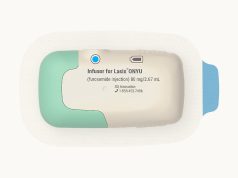The goal of the federally recognized definition is to provide consistency in research and policy to address health concerns associated with these foods
By Tina Brown HealthDay Reporter
THURSDAY, July 24, 2025 (HealthDay News) — The U.S. Department of Health and Human Services, U.S. Department of Agriculture, and U.S. Food and Drug Administration are gathering data to create a uniform definition of ultra-processed foods.
The agencies announced a joint Request for Information (RFI), to be published in the Federal Register tomorrow, to help establish a federally recognized definition of ultra-processed foods. The RFI is seeking information on which factors and criteria should be included in the definition.
The goal of the uniform definition is to provide “increased transparency to consumers about the foods they eat” and to provide consistency in research and policy to address health concerns associated with these foods.
“The threats posed to our health by foods often considered ultra-processed are clear and convincing, making it imperative that we work in lockstep with our federal partners to advance, for the first time ever, a uniform definition of ultra-processed foods,” FDA Commissioner Marty Makary, M.D., M.P.H., said in a statement.
According to the FDA, around 70 percent of packaged food products in the United States are considered ultra-processed, and 60 percent of calories consumed by children are from these foods. The FDA also mentions that “dozens” of studies have shown links between foods considered ultra-processed and adverse health outcomes such as cardiovascular disease, type 2 diabetes, cancer, obesity, and neurological disorders.
In May, the FDA and National Institutes of Health announced the establishment of the Nutrition Regulatory Science Program, a joint research initiative. Through this program, researchers aim to answer remaining questions about the health impacts of ultra-processed foods.
Copyright © 2025 HealthDay. All rights reserved.








